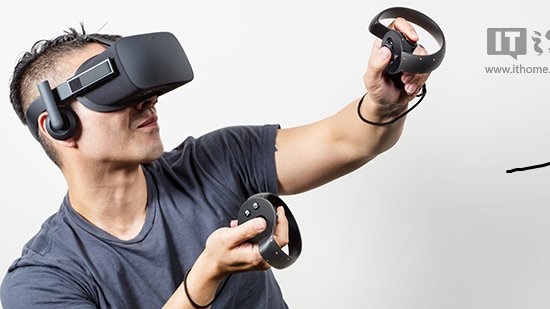The 13th Dubai International Film Festival (DIFF), scheduled for 7 to 14 December, "will take audiences on an immersive and boundary-pushing journey of storytelling with an all-new Virtual Reality (VR) lineup titled DIFFerent REALITY, the organisers said in a press release
Dubai Int'l Film Festival to embrace virtual reality technology for first time
TEST2
Technology
18:11
Wednesday ,23 November 2016

Ten of the world’s most advanced VR films, including five world premieres, will provide an unmatched cinematic viewing experience hosted at the Festival Headquarter at the Madinat Jumeriah, the home of DIFF for cinephiles and industry professionals alike.
The DIFF’s artistic director, Masoud Amralla Al-Ali, explains that being the region’s leading film festival, its organisers feel committed to bringing the latest and most advanced film techniques and its most anticipated products to the audiences of the festival and the world.
The DIFFerent REALITY programme will open with the Indian director Faiza Ahmad Khan's world premiere of When All Land Is Lost?, a non-fiction film that takes the audience “to the dilapidated land of Korba, India’s coalmining district, where years of mining has polluted the habitat and unsettled its people’s lives.”
“Told through the story of a tribal woman, the film reflects on today’s unfair developments, where those who pay the highest price often rarely benefit.”
The VR segment will also include Lake Baikal: The Science and Spirituality of Extreme Water by directors Georgy Molodtsov (Russia) and Michael Owen (USA); Italian director Haider Rashid's No Borders, a film tackling the migrant crisis; and a surreal drama titled Knives by Canadian director Adam Cosco; among others.
Virtual reality films give an opportunity to experience realistic images, sounds and sensations during the screenings. Supported by complex computer technologies, VR films often replicate the real environment, presenting it in a 360 degree format.
VR films have begun making their entry to international festivals, with the Cannes Film Festival, which took place in May 2016, introducing the VR films segment, where short VR films were screened in a pavilion dedicated exclusively to VR technology.
The VR technology has been received with a lot of enthusiasm by some audiences and a dose of scepticism from filmmakers, who believe that the new technological advancement might set limitations on the role of the director in the way they present their narratives.
In a May article published by Reuters about Cannes' VR experience, American director and producer Steven Spielberg said that though such movies will "take hold in a profound" way, they are also "a dangerous medium."
"The only reason I say it is dangerous is because it gives the viewer a lot of latitude not to take direction from the storytellers but make their own choices of where to look. I just hope it doesn't forget the story when it starts enveloping us in a world that we can see all around us and make our own choices of what to look at," Spielberg explained in the same interview.
Nevertheless, the DIFF organisers believe that “VR marks an important step for the industry as it offers audiences a unique experience that for the most part they can only get by stepping inside a movie theatre.”
“The world’s leading filmmakers are racing to produce their films with this technology, evidently proving the importance of opening up new horizons for storytelling and visual narrative. Here at DIFF we are looking forward to providing this experience to festival goers for the first time ever, as they witness storytelling in a whole new way,” Al-Ali said in the festival's press release.



